BUSINESS
Access, Diamond Mobile Apps To Run Side-By-Side
Published
5 years agoon

Customers are at the center of the Access Bank, Diamond Bank merger to create a leading outfit. Diamond Bank customers will lose nothing under the new arrangement. Access Bank will bring to bear on the deal its commitment to customers, financial inclusion, sustainability, corporate expertise, and strong balance sheet.
Both banks’ Mobile Apps will run side-by-side until when they become so much alike that their 13 million customers will not bother about their integration.
Globally, business combinations are seen as the surest route to achieving greater impact and giving customers the more values and enhancing profitability for the entities.
The merger deal between Access Bank Plc and Diamond Bank Plc, which will be concluded in April, presents great benefits to customers especially in the deployment of technology in providing banking services.
Based on the agreement reached by the boards of the two financial institutions, Diamond Bank shareholders would receive
The offer represents a premium of 260
“Together, we will bring the power of banking to millions across Nigeria, focused on speed, service, and security. We are determined to ensure that both Access Bank and Diamond Bank customers will experience no disruption to normal banking services while we join forces to create Nigeria and Africa’s largest retail bank by customers. While there may be some changes in due course, we are committed to
Executive Director, Personal Banking, Access Bank Plc, Victor Etuokwu, had during a media briefing in Lagos gave insight on what the future looks like for both lenders.
He said: “ It is a merger of two big banks to meet the needs of customers. We are going to run the mobile Apps of both banks side-by-side until when they will look alike, and when eventually integrated, customers will not even know. We know that Diamond Bank Mobile App is a market leader and we will leave it that way and same thing applies to the Diamond Extra”.
Continuing, he explained that where there are two close branches of both lenders, the customers will be the ones to determine which one will be closed, based on performance.
“If we have two branches like in Gbagada, Lagos, we will keep both of them open for one or two years. Then we will see where the customers go. Our customers will decide where they want to go. For us, we believe that the customer is king, and this merger is about giving the customer the best of services and value,” he stated.
Findings also showed that existing Diamondxtra customers have nothing to worry about as the reward scheme is not changing and winners will continue being paid while new winners will continue to emerge.
Besides, Diamond Bank customers can now enjoy instant borderless banking from any Access Bank branch.
“When they walk into any Access Bank branch and initiate payment in their local currency, the beneficiary will receive an instant direct credit to their account or cash in their local currency. This service is available in all Access Bank subsidiaries – Nigeria, Ghana, The Gambia, Democratic Republic of Congo, Rwanda, Zambia
Financial analysts said some other objectives behind mergers of the banks include increasing customer base and expanding into new activities.
Another important advantage of
Announcing Access Bank as the preferred bidder, Diamond Bank’s Chief Executive Officer, Uzoma Dozie, said the potential merger of the two banks would create Nigeria’s and Africa’s largest retail bank. He added that the transaction, to be completed in the first half of the year, is in the best interest of all stakeholders.
Dozie also stated that the completion of the merger is subject to certain shareholder and regulatory approvals, adding that the proposed merger would involve Access Bank acquiring the entire issued share capital of Diamond Bank in exchange for a combination of cash and shares in Access Bank via a Scheme of Merger. Based on the agreement reached by the boards of the two lenders, Diamond Bank shareholders will receive a consideration of N3.13 per share, comprising N1 per share in cash.
Dozie said the transaction would include the allotment of two new Access Bank ordinary shares for every seven Diamond Bank ordinary shares held as at the implementation date. He said the bank’s shares would be absorbed into Access Bank at the completion of the merger and Diamond Bank would cease to exist under Nigerian law.
“ The board of Diamond Bank believes that the proposed combination of the two operations provides an exciting prospect for all stakeholders in both businesses,” he said.
Access Bank CEO speaks
Access Bank Plc Group MD/CEO Herbert Wigwe said the bank has a strong acquisition and integration track record.
Speaking to the conclusive acquisition of Diamond Bank, Wigwe said the banks involved have complementary operations that will ensure benefits for customers of Access Bank and Diamond Bank. “Access Bank has a strong track record of acquisition and integration and has a clear growth strategy,” Wigwe said via a joint statement with Diamond Bank.
“Access Bank and Diamond Bank have complementary operations and similar values, and a merger with Diamond Bank, with its leadership in digital and mobile-led retail banking, could accelerate our strategy as a significant corporate and retail bank in Nigeria and a Pan-African financial services champion. Access Bank has a strong financial profile with attractive returns and a robust capital position with 20.1
Stakeholders speak on the deal
Lagos Chamber of Commerce and Industry (LCCI) Director-General, Muda Yusuf, said the first gain of the takeover is that Diamond Bank has been saved from going under and the economy protected from the consequences of such occurrence.
“Today, the good thing is that depositors fund is safe. Some of the employees are not likely to lose their jobs since it is acquisition, and that is good for the economy. If Diamond Bank had failed completely, there would be systemic effect. In terms of foreign perception, acquisition or merger is better than bank failure,” he said.
Yusuf, however, advised shareholders to be more active in knowing how their banks are run. “Shareholders should provide effective oversight to ensure that their investments are protected,” he said.
Also, former Diamond Bank’s General Manager, Richard Obire, said Diamond Bank has such a brilliant brand name and customer base and these are what Access Bank will inherit. “The name Diamond Bank is gone forever and the next will be integration, which will lead to exit of the bank’s management team.”
Former President/Chairman of Council, Chartered Institute of Bankers of Nigeria (CIBN), Okechukwu Unegbu, said the process of takeover of Diamond Bank was an improvement from what happened at defunct Skye Bank.
According to him, the decision is a proactive step when compared to that of Skye Bank because Diamond Bank investors will even gain in the new arrangement.
“I think that shareholders of Diamond Bank did not lose much. Whether it is merger or acquisition between the two banks, the fact is one big bank is better than two weak banks.
“With this development, one expects a strong, virile and capable institution in the future that will equally protect the interest of the investors,” he said.
He, however, said the CBN should institute new measures that ensure that people who violate banking rules are punished. “The CBN is the regulator and is expected to monitor and punish some of the recklessness of some of the banks and their managing directors. Banks’ boards should be held accountable. Again, there should be extra-ordinary shareholders’ meeting to approve the acquisition and possibly plan for a seamless integration process,” he said.
Michael Azu, a Lagos-based financial analyst, said the acquisition would boost stability and investors,w adding that it was a welcome development instead of allowing Diamond Bank to face regulatory sanctions and possibly liquidation for its poor liquidity positions.
“The merger has helped to protect investors’ and depositors’ confidence. It has ensured that depositors’ funds are protected from undue risk, and also removes the issue of systemic failure in the financial system,” he said.
Diamond Bank’s position
Diamond Bank had earlier announced its decision to drop its international operating licence to focus on national operations following capitalisation issues.
Dozie said: “The re-licensing as a national bank supports Diamond Bank’s objective of streamlining its operations to focus resources on the significant opportunities in the Nigerian retail banking market, and the economy as a whole,” he said in a statement.
“The move follows Diamond Bank’s decision to sell its international operations, which included the disposal of its West African Subsidiary in 2017 and Diamond Bank UK, the sale of which is currently in its final stages.
You may like
-


Access Bank PLC And KCB Group PLC Sign Binding Offer On Acquisition Of National Bank Of Kenya (NBK)
-
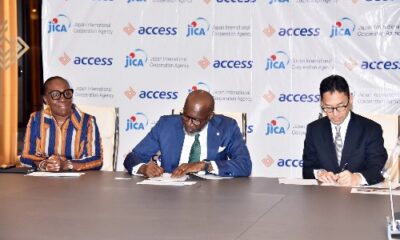

Access Bank PLC Signs Landmark Loan Agreement With Japan International Cooperation Agency To Advance Climate Change Measures In Nigeria [PHOTOS]
-
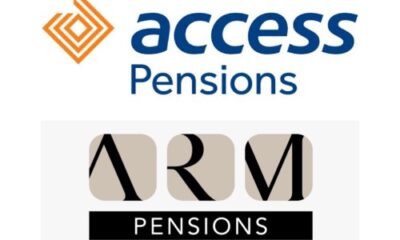

Access Pension To Merge With ARM After Majority Stake Acquisition — FCCPC
-


Access Bank To Acquire Majority Stake In Finance Trust Bank, Targets Financial Inclusion, Empowerment, And Innovation In Uganda
-


Access Bank Plc, EIB Partner To Empower SMEs, Women Through €50 Million Facility
-


Stakeholders Discuss ESG Strategies At Aspire Coronation Trust (ACT) Foundation’s 7th Breakfast Dialogue
BIG STORY
MTN, Glo, Other Telcos Seek NCC Approval For Tariff Hike Over Forex Instability
Published
2 days agoon
April 26, 2024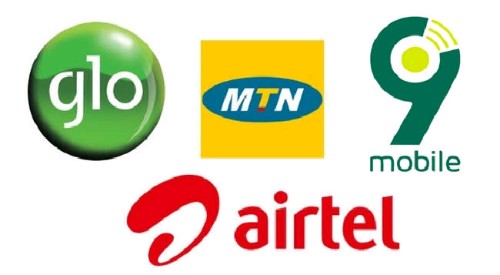
Nigeria’s telecom providers, notably MTN Nigeria and Globacom, through the Nigerian Communications Commission (NCC), have requested permission from the Federal Government to increase their rates.
The move occurred after some of the operators had to report losses the previous year due to rising energy prices and foreign exchange losses.
Less than 24 hours had passed since MultiChoice, a pay television provider in South Africa, increased its pricing when the telecoms proposed to do the same. A number of businesses, such as breweries and discos, have also increased their pricing recently.
On Thursday, the telcos, under the aegis of the Association of Licensed Telecom Companies of Nigeria and the Association of Telecom Companies of Nigeria, issued a joint statement asking the government to expedite the approval.
The two bodies in their statement explained, “Despite the adverse economic headwinds, the telecommunications industry remains the only industry yet to review its general service pricing framework upward in the last 11 years, primarily due to regulatory constraints.
“For a fully liberalised and deregulated sector, the current price control mechanism, which is not aligned with economic realities, threatens the industry’s sustainability and can erode investors’ confidence.”
The associations called on the federal government to facilitate a constructive dialogue with industry stakeholders to address pricing challenges and establish a framework that balances consumers’ affordability with operators’ financial viability.
The telecom industry appears to be among a few sectors that have yet to review their prices despite the rising inflation in the country amid other economic challenges. They blamed this on the regulatory restraints that have been preventing them from pricing appropriately.
Efforts to reach the commission’s Director of Public Affairs, Reuben Mouka, on whether the request will be considered proved abortive as of press time on Thursday. There were no responses to calls, WhatsApp messages, and text messages sent to his line.
The NCC regulates prices in the telecom industry, and telecom operators are not allowed to implement any price changes without the regulator’s approval. The regulator has said a cost-based study is being conducted to determine if it would approve price increments for the operators.
The Chairman, Association of Licensed Telecoms Operators of Nigeria, Gbenga Adebayo, said in a publication on Thursday that cost reflective tariff was non-negotiable.
“We have seen the impact of price control in other segments of the economy, like power. If providers cannot operate sustainable business models, then they’ll stop investing. When that happens, the existing infrastructure starts to crumble.
“For power, a consumer can choose to take ownership of the solution by buying a generator, or a solar panel. For fuel, the government can step in as a provider of the last resort and manage a subsidy regime that mitigates the impact on the population. Those options are not available in the telecoms sector. There is no self-help solution,” he explained.
The industry has faced significant increases in operational costs occasioned by the scarcity of foreign exchange, network expansion, and upgrades, which have also negatively affected the bottom lines of the operators.
Investment in the sector has also dwindled to $134m in 2023 from $456.8m in the previous year, a decline of $322m, according to the National Bureau of Statistics.
The decline represented a decrease of approximately 70.5 percent.
MTN Nigeria Plc has disclosed a substantial loss of N740.4bn for the fiscal year 2023, a notable surge from the N81.8bn loss reported in 2022, marking an alarming 804 per cent increase, equivalent to N658.6bn.
This drastic financial setback is primarily attributed to the effects of the foreign exchange market liberalisation that commenced in June of the previous year.
MTN clarified that it applied an official exchange rate of N907.11 per dollar, based on NAFEM (Nigerian Autonomous Foreign Exchange Market), as of December 31, 2023.
This implies that the reported loss might escalate further if the prevailing exchange rate between the naira and dollar remains unchanged by the end of March, coinciding with the publication of its Q1 results.
Meanwhile, Airtel Africa reported a 99.6 per cent decline in its post-tax profit to $2m at the end of the nine months ended December 2023 from $523m at the end of the same period in 2022.
The key driver behind these losses was the liberalization of the forex market in June 2023, which led to a 96.7 per cent devaluation of the naira from N461 per dollar in December 2022 to N907.1 per dollar by the end of 2023, MTN disclosed in its audited financial results for 2023.
According to The Punch, the President of Telecommunications Companies of Nigeria, Tony Izuagbe, explained that telcos are running at a loss and may not survive this year should tariffs remain the same.
Izuagbe warned that if urgent action is not taken, many telecom operators may be forced to shut down operations, leaving millions of Nigerians without access to vital communication services.
He emphasised that the current tariff regime is insufficient to cover the costs of providing services, and urged regulatory bodies to address the industry’s challenges and support operators in maintaining the quality of service.
The current price of diesel, ranging from N1300 to N1500 per litre, has placed a substantial financial burden on operators, who consume an average of 2000 to 3000 litres per month per base station, Izuagbe analysed.
In 2023, telecommunication companies spent about N429.43bn on diesel for base stations, an increase of 34.57 per cent from the N319.11bn they spent in 2022. This is because diesel prices soared in 2022 and remained at an elevated level in 2023.
In 2022, the telecoms industry noted, “The telecommunications industry has been heavily financially impacted following Nigeria’s economic recession in 2020 and the effect of the ongoing Ukraine/Russia crisis. This has increased energy costs, (which constitutes an appreciable 35 per cent of ALTON’s members’ operating expenses).”
Telcos use an average of 40 million litres of diesel per month to power telecom sites.
ATCON President expounded, “We all know the challenges of inflation, which is affecting operators. Let’s take a typical diesel price, for example, which is sold at N1500 per litre or even N1300. On average, a typical base station would use about 2000–3000 litres in a month.”
Analysing further, he stated, “The cost per gigabyte of data in Nigeria is about N250. By the time you look at the expenses incurred in maintaining a base station, you will discover that revenue will not be enough to cover them.
“This excludes colocation and infrastructure services. By the time they mark up their charges, the operators will also be suffering.”
He revealed that many operators were already cutting back on infrastructure investments to mitigate losses and warned that if drastic measures are not taken, many may not survive the year.
Izuagbe acknowledged that the NCC has been working to address some of the challenges facing the industry, but emphasized that more needs to be done to ensure the survival of telecom operators.
He described the situation as a “chicken and egg scenario,” where it is difficult to improve the quality of service when operators are struggling to survive.
He urged the NCC to take further action to address the challenges facing the industry, including the issue of compensation for damaged infrastructure, to ensure that telecom operators can provide the quality of service that Nigerians deserve.
A commission official, speaking anonymously due to the sensitive nature of the issue, conveyed that the operators were left with no choice but to seek a tariff review approval from the commission. However, such approval might not be granted due to the prevailing high cost of living.
The official said, “Telecommunications cannot do anything without the commission’s permission. There can’t be any increment in cost without regulatory approval. That is what the law says. They can only keep agitating. The telecommunications sector is unlike other sectors that can increase their prices at any time without notice or recourse.”
Meanwhile, some subscribers and economists has shown support for the move by telecom operators to increase tariffs to stay afloat.
As of March 2024, industry statistics obtained from the NCC website showed that there are at least 219 million subscribers.
The President of the National Association of Telecommunications Subscribers, Adeolu Ogunbanjo, called for a marginal increase in tariff prices.
According to Ogunbanjo, the increase is necessary to help operators offset the rising cost of operations, including the purchase of equipment in dollars, which has been affected by the fluctuating exchange rate, and the removal of fuel subsidies, which has led to an increase in the price of diesel used to power base stations.
The NATCOM president acknowledged that telecom companies were facing significant challenges, including the need to improve services, deploy infrastructure, and power their base stations.
He noted that a slight increase in tariff prices would not be detrimental to subscribers but would rather help operators continue providing services and investing in infrastructure.
A slight increase in tariff prices would not be detrimental to subscribers but would rather help operators continue providing services and investing in infrastructure, Ogunbanjo pinpointed.
“A slight increase will not be bad so as not to suffocate the operators. They need to improve services, they need to deploy infrastructure, and it will be difficult if the situation doesn’t improve. They have to continue to power their base stations. Recently, they had issues with the undersea cable. All these issues have compounded their woes,” he buttressed.
Professor of Economics at Olabisi Onabanjo University, Sheriffdeen Tella, said that the move was long overdue.
The cost of operation for telecom operators has increased significantly, making it difficult for them to sustain their businesses, the academic stated.
“When I see the cost of sending text messages, I discover that they haven’t increased their charges. Generally, the cost of operation has increased, and it’s the government that is supposed to reduce the cost of energy, the interest rate, and all those indicators.
“So, since the government is not doing that, they cannot stop them. So there is a need for the government to review its policies. The need to intervene generally in the economy,” he elaborated.
Tella also highlighted the need for subscribers to adjust to the new reality and understand that operators cannot continue to operate at a loss.
He warned that if the situation is not addressed, more companies may be forced to leave the market, which would have negative consequences for the economy.
An economist, Aliyu Ilias, stated, “The move is justifiable, and the telcos and the NCC have been doing well. The way they have even approached the situation is commendable.
“The environment they operate in is not different from the environment others are operating in. It is a tight move, but the government needs to work with them to know the percentage they intend to increase the tariff,” Ilias argued.
Credit: The Punch
BIG STORY
Fuel Queues Resurface As Scarcity Hits Abuja, Anambra 4 Other States
Published
3 days agoon
April 25, 2024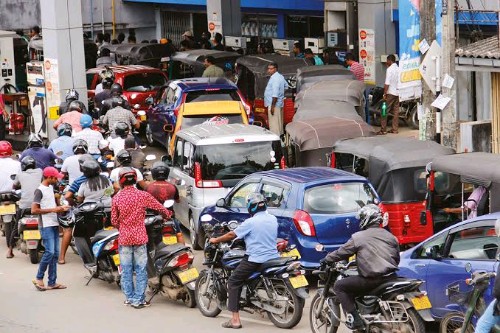
Many filling stations in Abuja and roughly five other states are closed on Wednesday as scarcity of Premium Motor Spirit, also known as petrol cause heavy queues at few locations that dispensed the product.
The lack of PMS, which carriers need to operate their vehicles, left thousands of commuters in the Federal Capital Territory, Nasarawa, Niger, Gombe, Sokoto, and Anambra states stuck at several bus stops.
Due to the few transporters who had access to petrol, this resulted in an increase in transit fares in the impacted states.
It was gathered that the scarcity was due to a shortage in the supply of PMS to the nation’s capital and other states, as this led to the closure of filling stations in the affected areas.
Oil marketers, however, stated that they would hold a meeting with the management of the retail subsidiary of the Nigerian National Petroleum Company Limited today (Thursday) to know the cause of the shortage and how to tackle it.
Hundreds of motorists besieged the Conoil and Total filling stations that sold petrol in front of the corporate headquarters of NNPC in Abuja on Wednesday.
This led to vehicular traffic on the roads leading to NNPC headquarters and other surrounding companies in the Central Business District of Abuja.
Several filling stations in Zuba, Niger State, including NNPC, AYM Shafa, among others, were closed on Wednesday for lack of petrol to dispense.
Similarly, the NNPC outlet on Arab Road, Kubwa, Abuja, had no product to sell. Many other outlets along the Kubwa-Zuba expressway were also shut. In Nyanya, Nasarawa State, many filling stations were closed.
Their inability to operate piled pressure on the few stations that had PMS on Wednesday, leading to massive queues by motorists at these outlets.
Oil marketers, however, stated that the reason for the shortage in the supply of PMS to Abuja and neighbouring states was being investigated, adding that a meeting would be held on the matter today (Thursday).
According to The Punch, the National Secretary, Independent Petroleum Marketers Association of Nigeria (IPMAN), Chief John Kekeocha said “It is obvious that there is supply shortage in Abuja and other states that are close to the FCT (Federal Capital Territory)”
He added, “This is the reason why many filling stations in these areas are not selling PMS, which, of course, has led to the serious queues you see in the few ones that are dispensing the product. I cannot tell you the reason for this supply shortage now.
“But we are meeting with NNPC Regal tomorrow (Thursday), and this is going to form part of our discussions. The matter is being looked into right now, and we hope to find a solution to it during the meeting.”
Earlier, the National President, IPMAN, Abubakar Maigandi, told our correspondent that the queues for petrol in many states would be a thing of the past when the Dangote Petroleum Refinery starts pumping out PMS to the domestic market.
But when asked whether the refinery had briefed marketers about when it would start pumping out the product, Maigandi replied, “We don’t know the time. But since he said he would start it, I know that he will do that.
“So we are still waiting and we know that once he starts releasing petrol to the domestic market, this issue of fuel scarcity and queues will become a thing of the past.”
His position was corroborated by the IPMAN National Public Relations Officer, Chief Ukadike Chinedu, who also expressed hope that the Port Harcourt Refining Company would start producing refined petroleum products very soon.
- Commuters Stranded
It was gathered that thousands of commuters going to their various destinations were stranded at different motor parks in Anambra State on Wednesday due to the unavailability of transportation vehicles because of the shutting down of petrol stations across the state.
Most petrol stations in the major cities of Awka, Onitsha, Nnewi, Umunze, Ekwulobia and other environs remained shut and were not dispensing fuel on Wednesday morning.
As a result of this, the few vehicles plying the road increased the transportation fares by over 200 per cent while commuters who struggled to board them were made to pay the high rates.
For instance, commercial transporters charged N500 for a journey that used to be N200, while a journey of N500 was charged between N1,200 to N1,500.
The development caused many commuters to start trekking to their various destinations while others waited at the parks.
It was also observed that many offices and business premises did not open till around 10:30 am because their employees had yet to report for duty.
The reason why the petrol stations were closed could not be ascertained immediately. But the development generated a lot of mixed feelings among the public.
Some people believed that the petrol stations were on strike, others were of the opinion that it was a deliberate attempt by the marketers to increase the pump price of the commodity.
According to The Punch, a tricycle operator plying the Onitsha axis, simply identified as Tochukwu, said, “I bought fuel from the black market for as high as N1,350/litre this morning in order to work, after we discovered that filling stations did not open. Some of my colleagues went to Asaba in Delta State to get the product and that is why transportation fares are high this morning.
“We don’t really know why the filling stations are shut, but we are hearing that is like they are in a meeting somewhere in Awka. We have experienced this kind of situation before and when they came back from their meeting that day, they hiked the pump price of petrol. It’s likely to be the same situation, we are watching as events unfold.”
A commuter at Awka, Chinwe Okeke, said, “I have been standing at the Regina Caelis Bus Stop for over two hours waiting to board a vehicle to UNIZIK, but it has been difficult. The vehicles that are coming have been charging very exorbitantly, I don’t know what is really happening.”
When contacted on the development, the Anambra State Commissioner for Petroleum and Mineral Resources, Anthony Ifeanya, said, “There is no cause for alarm and commuters and motorists should not panic.
“It’s likely that the petrol marketers are in a meeting and whenever they are having such meeting, shutting of petrol stations is a way of compelling every member to attend the meeting. Their meeting usually starts from morning till noon.”
It was also observed that the sudden fare hike also affected both interstate and intrastate movements.
- Queues In Lagos
It was observed that the NNPC filling station along Cele expressway in Lagos had long queues on Wednesday due to the fact that the pump price was selling at a lower rate of N585/litre when compared to other filling stations.
But the AP filling station located at Barracks along Chemist Bus Stop in Lagos was not selling petrol.
However, there were no queues at Jezco filling station at Oja-Oba, along Pako Bus Stop in Lagos because the station was selling at N650/litre.
The Northwest filling station along the Gbagada expressway had long queues as the pump price at this station was N610/litre.
Heavy queues were seen at the NNPC filling station along the Ogudu expressway with the station selling at N585/litre.
- Fuel Sells At N710/Litre In Ogun
Residents of Abeokuta, Ogun State capital now buy a litre of petrol for between N650 and N710/litre.
It was observed that while many of the filling stations were not selling fuel on Wednesday, the few independent filling stations that were attending to customers sold the product at between N660 to N710/litre.
However, the NNPC mega station along Abiola Way dispensed a litre for N580 but the queues here were very long.
Eternal Oil along Kobape road with a fairly large crowd sold petrol for N660/litre while others such as KH filling station, Adigbe, among others, sold theirs at N700/litre and above.
- Scarcity In Gombe
Fuel scarcity has hit most filling stations in the Gombe State metropolis.
Some motorists told our correspondent in the state that they suspected sabotage, as fuel was sold for between N760 to N800/litre depending on the station. The worst hit areas are the hinterlands.
Bako Hussain, a motorist, said, “We know that it is a sort of plan work by the filling stations. How can one open today and tomorrow the next one will open and the one that sold yesterday will not open.”
Also speaking, Hajara Bala, said “It is hard to get fuel in the state as the queues are building across filling stations. I think it’s artificial scarcity. I see no reason why we will have money and still wait with your N760 or more depending on the station.”
Motorists in Sokoto State also decried the continued rise in the price of petrol as the product rose to N830/litre on Wednesday.
Findings (by The Punch) in Sokoto on Wednesday evening showed that most of the filling stations that opened for business in the morning had closed their outlets before 4 pm, making the product more scarce for consumers.
Almost all the big marketers including NNPC, AA Rano, Shafa, among others, were not dispensing the product on Wednesday evening.
The few filling stations that dispensed the product on Wednesday evening sold it at between N800 and N830/litre and still had long queues.
A motorist, Abdul Ahmad, said, “How do you explain a filling station which sells fuel at the rate of N770/litre in the morning, only for you to come back in the afternoon and same people now sell at N820/litre.
“This is very bad and we should stop doing this to ourselves in this country.”
- NNPC Silent
Meanwhile, efforts to get the NNPC to explain reasons for the queues and the fuel supply shortage in states were unsuccessful.
NNPC is currently the sole importer of petrol into Nigeria, as other marketers stopped importing the commodity due to their inability to access adequate foreign exchange required for PMS importation.
NNPC’s spokesperson, Olufemi Soneye, did not answer calls to his phone when contacted on the matter.
Credit: The Punch

The naira, on Wednesday, depreciated to N1,300 per dollar at the parallel section of the foreign exchange (FX) market.
The N1,260 transacted on April 22 represents a 3.17 percent decrease in the current FX rate.
Bureau de change (BDC) operators, who deal in currency, stated a buying rate of N1,260 and a selling price of N1,300, with an N40 profit margin.
The naira dropped 0.64 percent to N1,308.52 against the dollar at the official window, from N1,300.15 on April 23.
The main FX trading platform in Nigeria, FMDQ Exchange, reports that the naira touched a high of N1,367 and a low of N1,098.
With the current record, the official window rate still surpasses that of the parallel market by N8.52.
The Central Bank of Nigeria (CBN), on April 23, reduced the FX rate for dollar allocations to BDC operators.
The financial regulator, in a circular signed by Hassan Mahmud, director of trade and exchange department, said it sold $10,000 at the rate of N1,021/$ to each BDC.
On April 8, CBN also sold FX to the BDCs at the rate of N1,101/$, compared to the N1,251 the apex bank offered to the parallel market operators on March 25 and the N1,301 announced on February 27.

Yahaya Bello: EFCC Confirms Refund Of $760,000 From American International School Abuja

Yahaya Bello: Kogi Court Summons EFCC Chairman Olukoyede Over Alleged Contempt

Naira Depreciates Because I Was Out Of The Country — Odumeje

Two Brothers In Police Net For Alleged Gang-Rape In Ogun

Lagos Government Pays N1.5bn WASSCE Fees For 58,000 Students

How I Survived Suicidal Thoughts, 14 Heartbreaks, 15 Abortions, Divorce And Alcoholism — Lara Kudayisi Don-Momoh [VIDEO]

BREAKING: EFCC Arrest, Detain Bobrisky

BREAKING: Bobrisky Sentenced To 6-Month Jail Term Without Option Of Fine Over Naira Abuse

Jnr. Pope: My Opinion On The Boat Crash That Claimed The Life Of Nollywood Talents By Seun Oloketuyi

Yahaya Bello: Lawyer Asks Kogi Assembly To Begin Impeachment Process Against Ododo
JoIn Us On Facebook
Most Popular
-

 BIG STORY2 days ago
BIG STORY2 days ago48-Yr-Old Nigerian Man Who Relocated To UK In 2022 Beats Wife To Death With Son’s Skateboard Over Bills, Alleged Infidelity
-

 BIG STORY2 days ago
BIG STORY2 days agoAmerican International School Writes EFCC, Seeks To Refund $760k Of Yahaya Bello’s Children School Fees
-
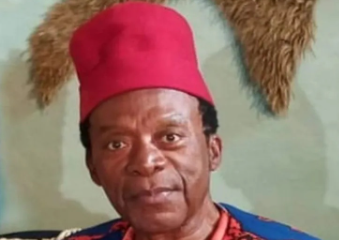
 BIG STORY4 days ago
BIG STORY4 days agoNollywood Losses Another Veteran Actor, Zulu Adigwe
-
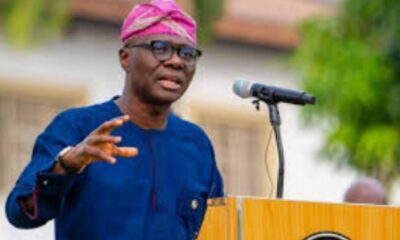
 BIG STORY2 days ago
BIG STORY2 days agoLagos Workers Now Earn N70,000 As Minimum Wage Since January — Sanwo-Olu
-

 BIG STORY4 days ago
BIG STORY4 days agoYahaya Bello Not Running From The Law, EFCC Lied, They Never Invited Him — Ex-Gov’s Media Office
-
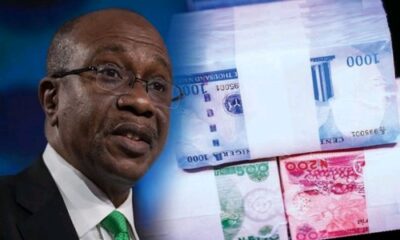
 BIG STORY4 days ago
BIG STORY4 days agoJUST IN: EFCC To Arraign Former CBN Governor Emefiele On Fresh Charge, Says He Printed N684.5m Notes With N18.9bn
-

 BIG STORY4 days ago
BIG STORY4 days agoI’ll Resign If Yahaya Bello Is Not Prosecuted — EFCC Chairman Olukoyede
-

 BIG STORY4 days ago
BIG STORY4 days agoBREAKING: EFCC Arrests Former Aviation Minister Hadi Sirika Over Alleged N8bn Nigeria Air Fraud














